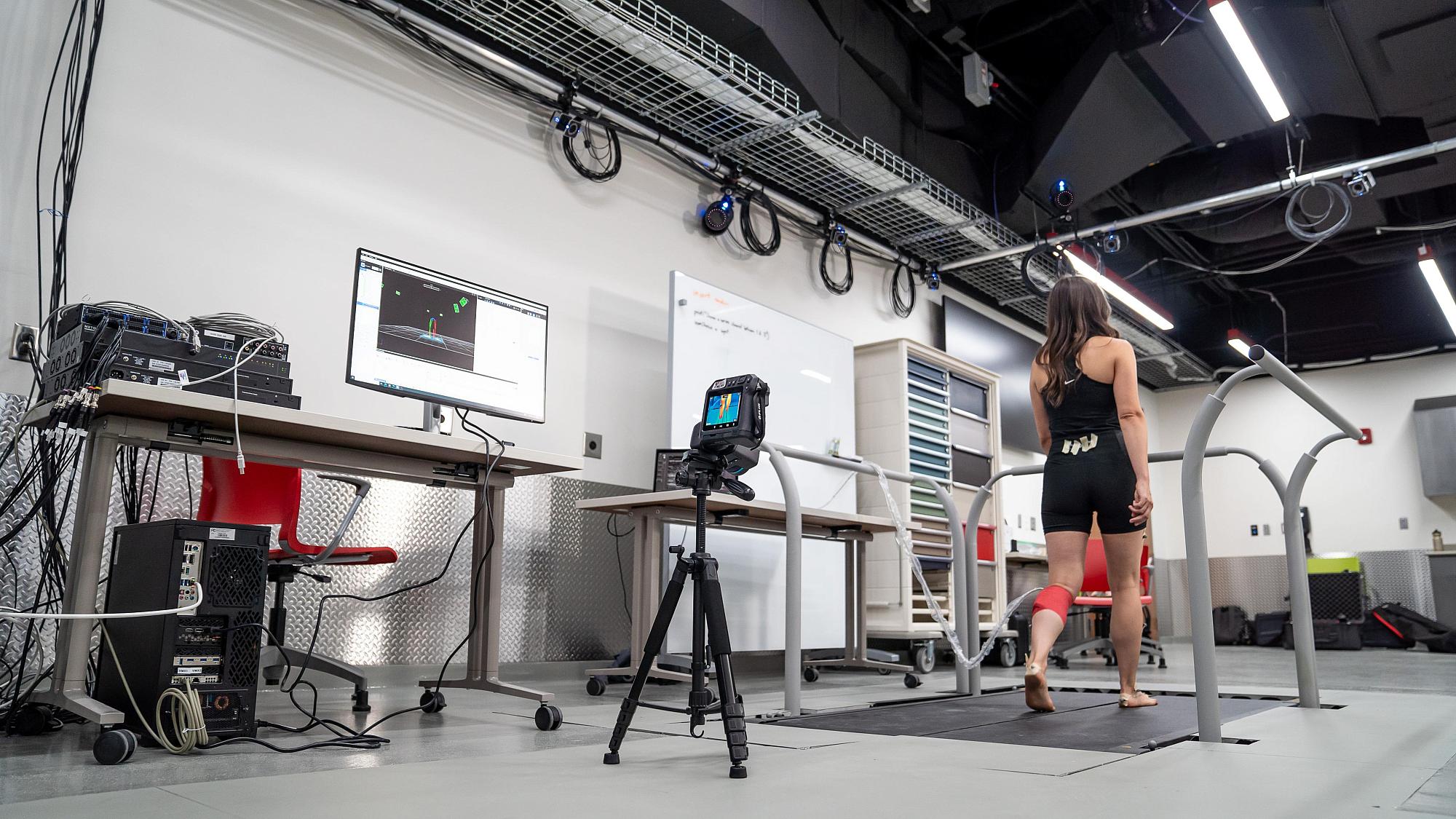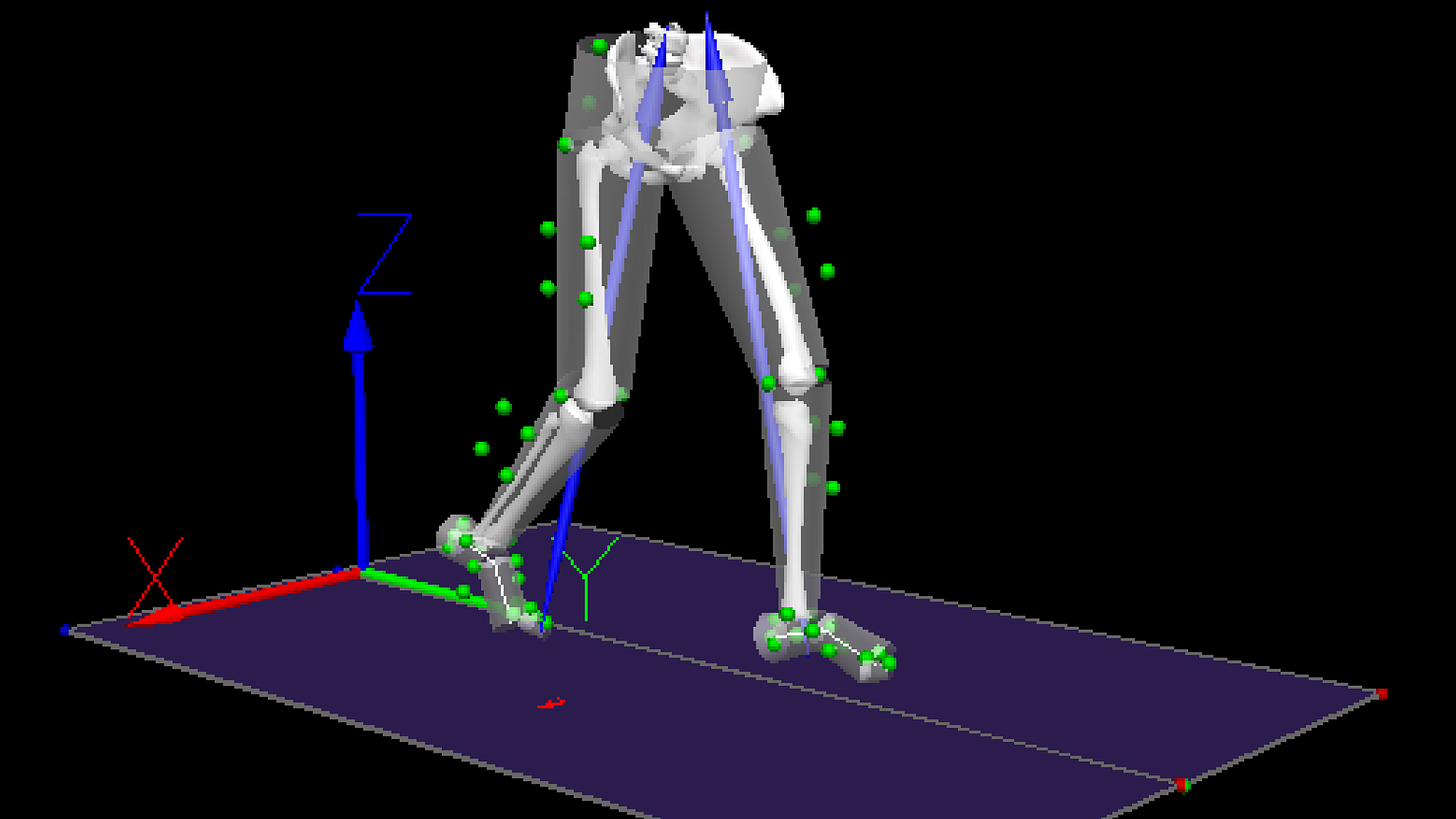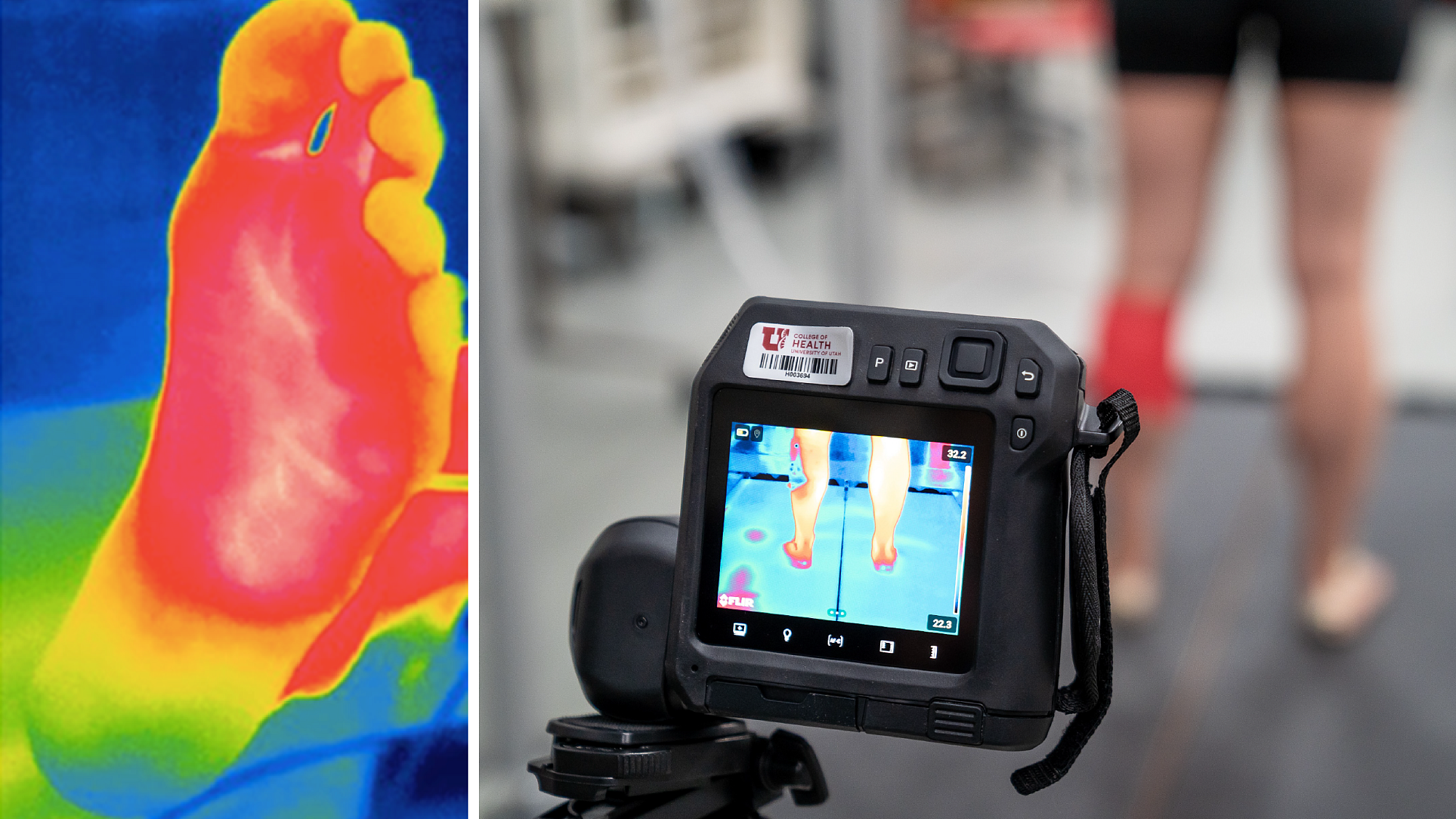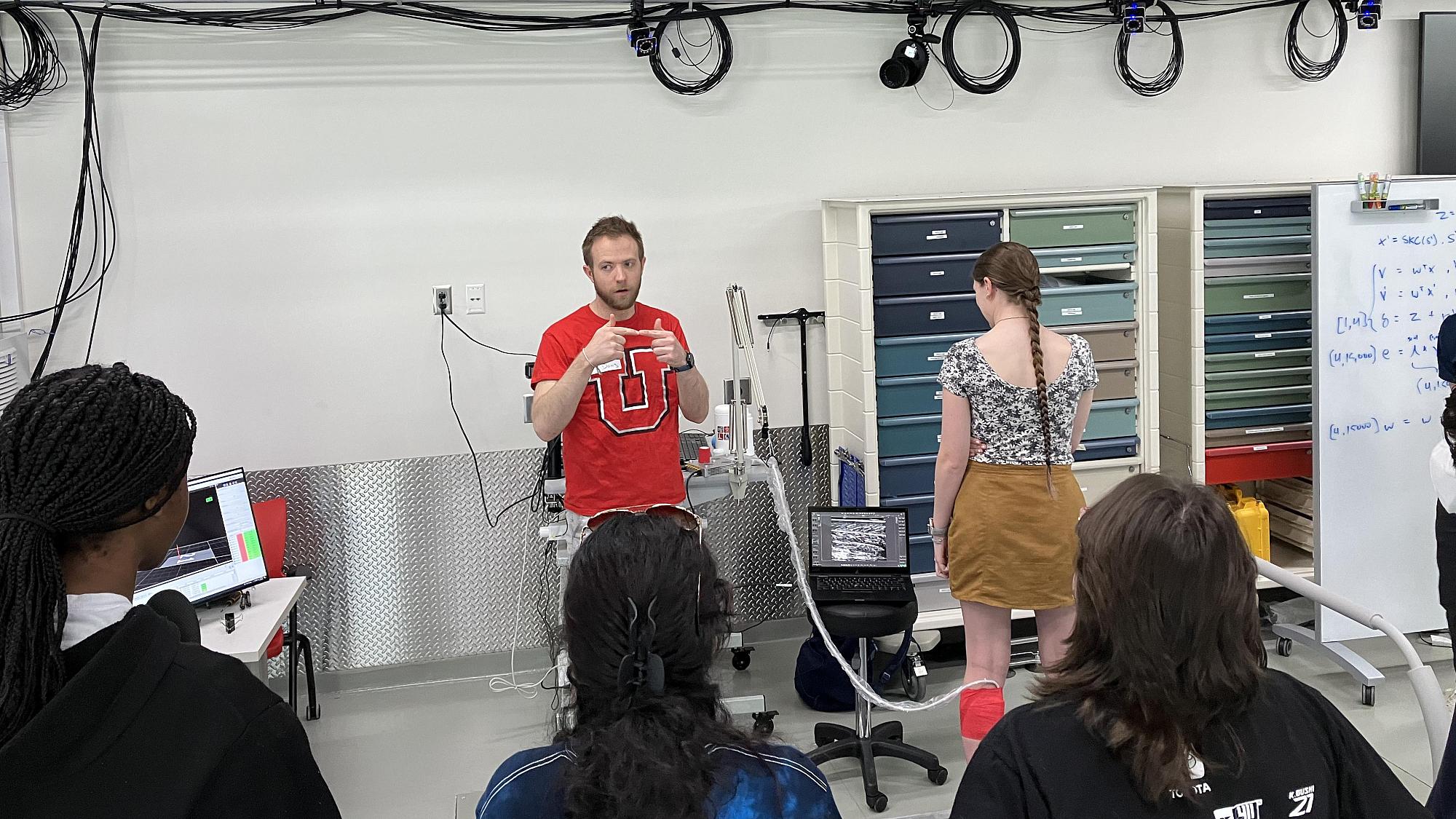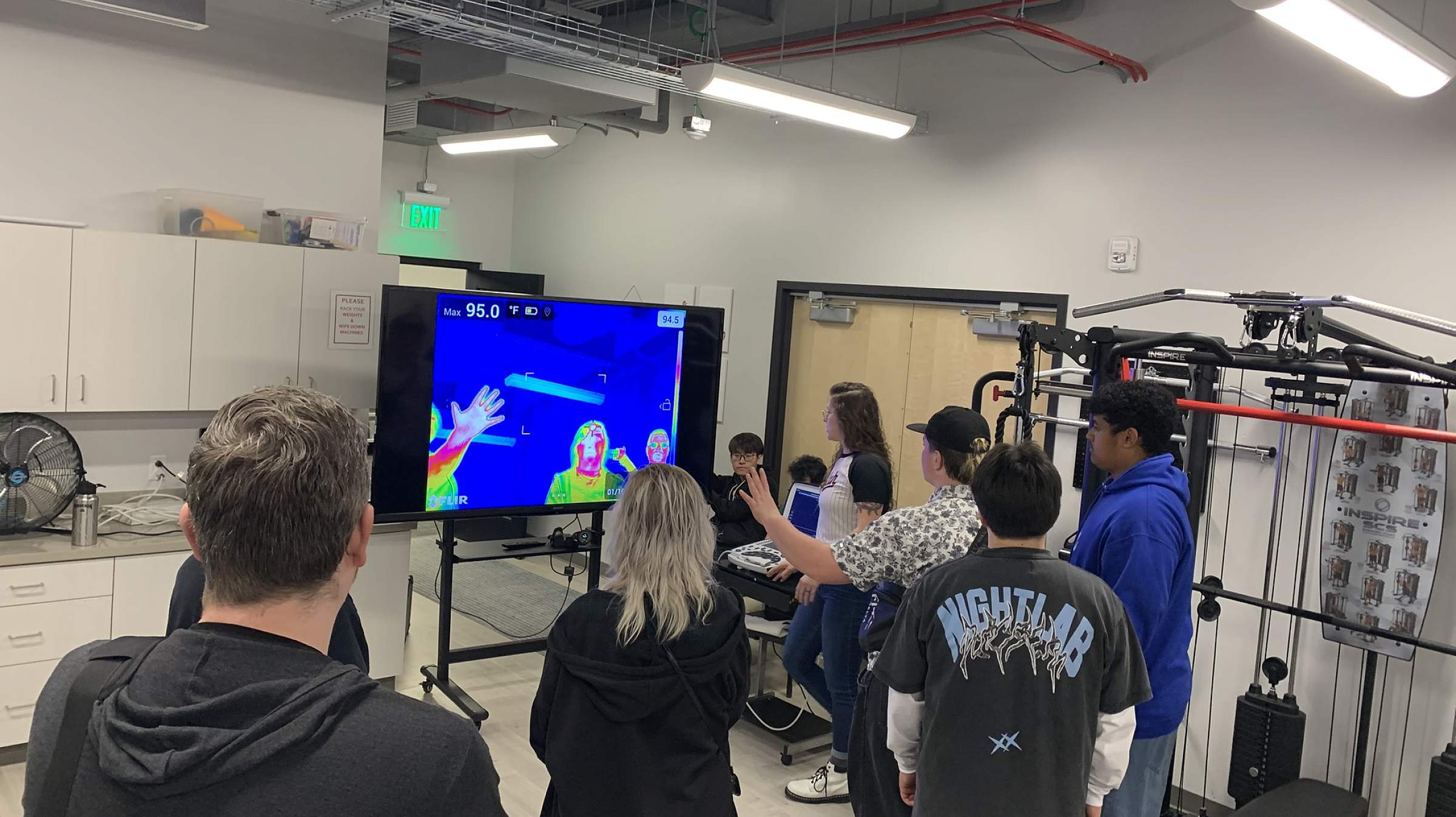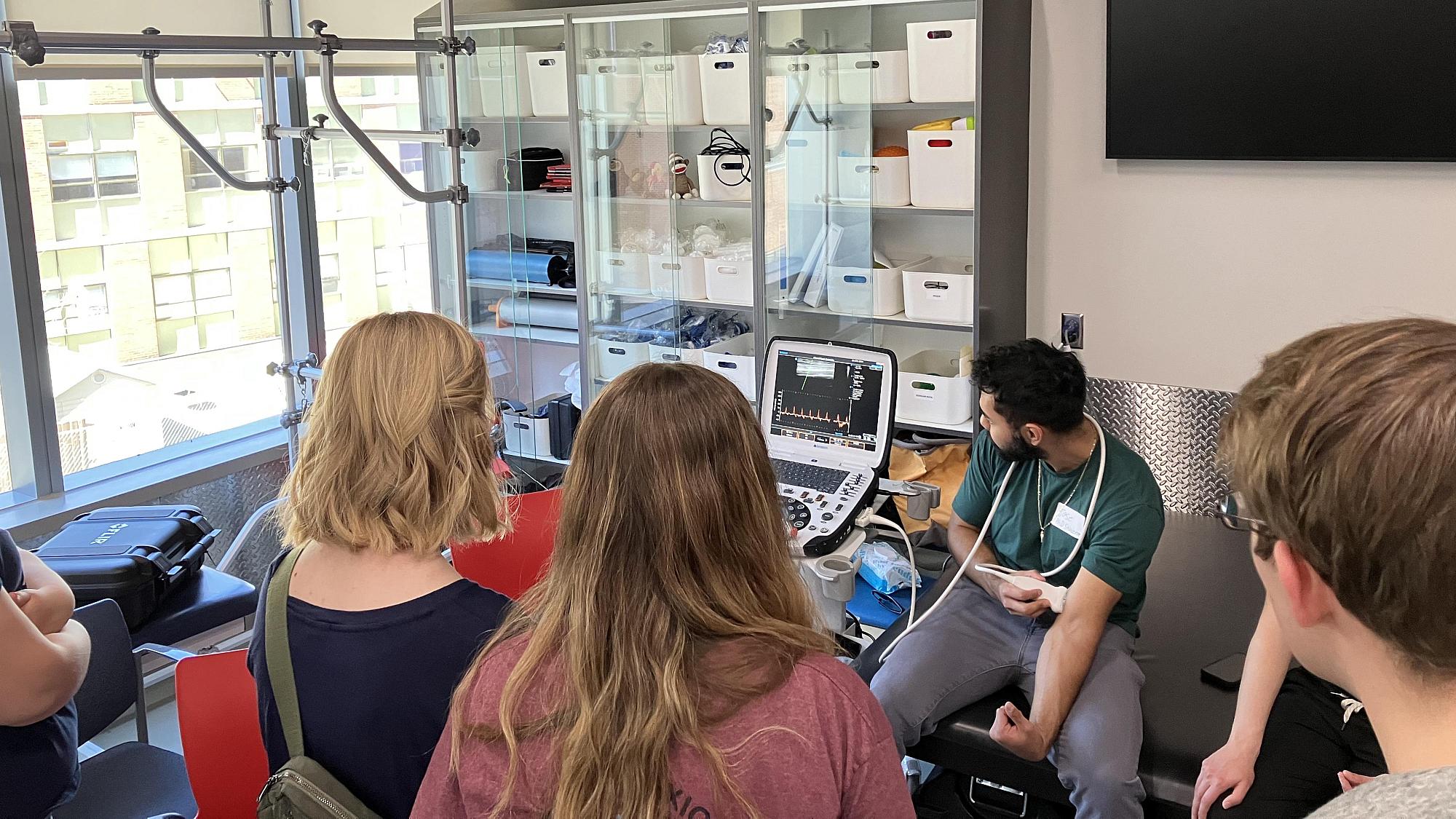
Our lab utilizes a multi-faceted approach to studying the biomechanics and energetics of human locomotion, especially related to the functions of foot and ankle structures. Through a combination of experimental tools like 3D motion capture, in-vivo imaging (e.g., ultrasound, thermal camera) and calorimetry, we examine how the body produces movement, consumes energy, and maintains healthy tissue.
Our work is currently conducted in the University of Utah's Advanced Rehabilitation Technology (ART) Research Studio in the Craig H. Neilsen Rehabilitation Hospital and the Musculoskeletal Biomechanics Lab and Mobility and Stability Lab in the College of Health Research Center.
Research Projects
Biomechanics & Energetics
We study human movement through different systems at multiple scales, including muscle contractile behavior (using ultrasound), joint or segment mechanics including mobility of feet (using computational models), blood flow (using doppler ultrasound) and whole-body metabolic energy expenditure (using indirect calorimetry). This knowledge helps us understand the causes of mobility impairments in people with various health conditions (e.g., amputation, diabetes, aging) and informs clinical translations to enhance functional outcomes.
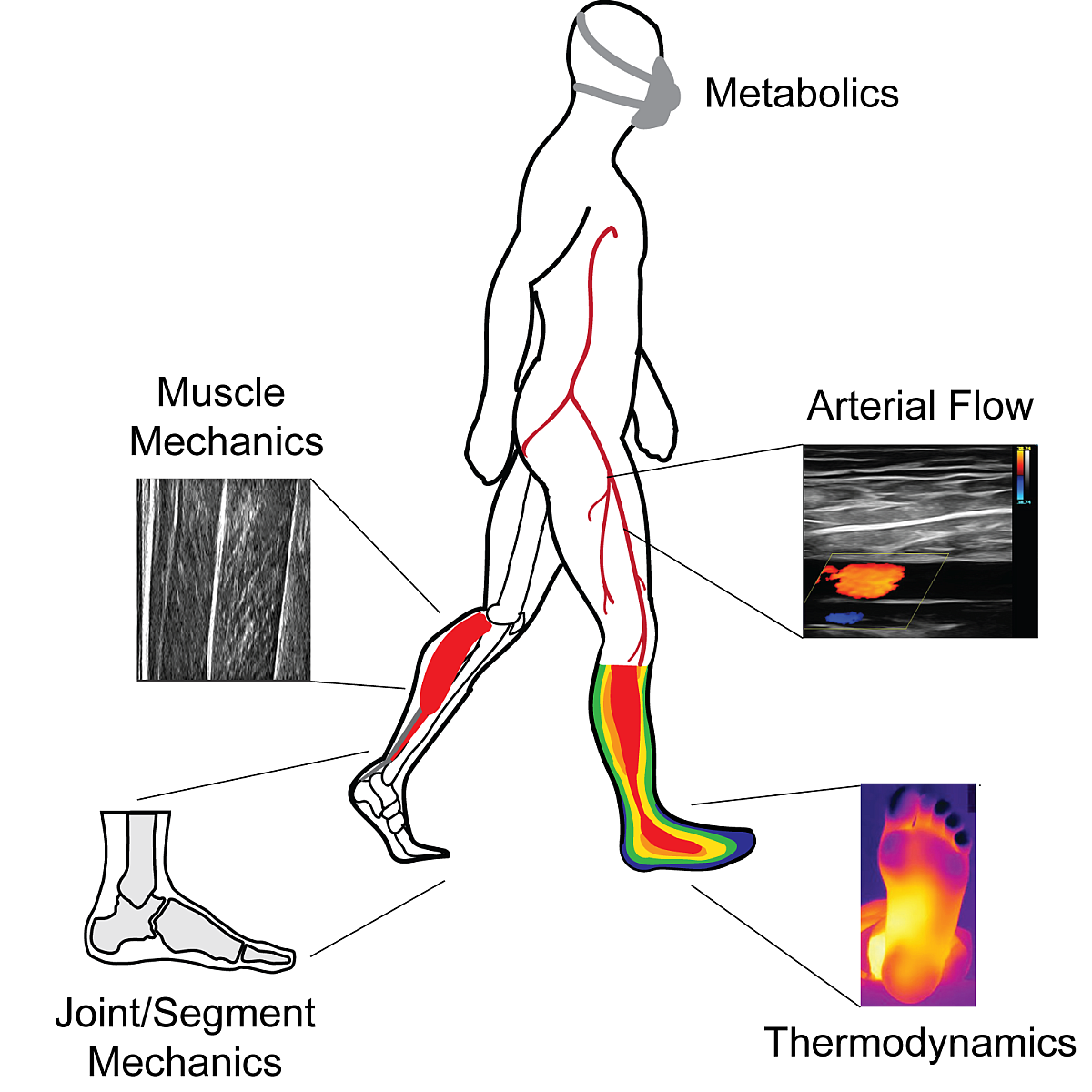
Wearable Devices for Mobility Enhancement
We aim to improve wearable device interventions, including footwear and prosthetics. Current studies include the use of low-cost footwear (e.g., carbon fiber insoles) to enhance mobility in young and older adults. We also study how prosthetic feet can better emulate biological feet, using a combination of commercially-available prostheses and research-grade robotic devices. In all of these studies, our long-term goals are to improve the design and prescription of wearable devices to maximize mobility outcomes.
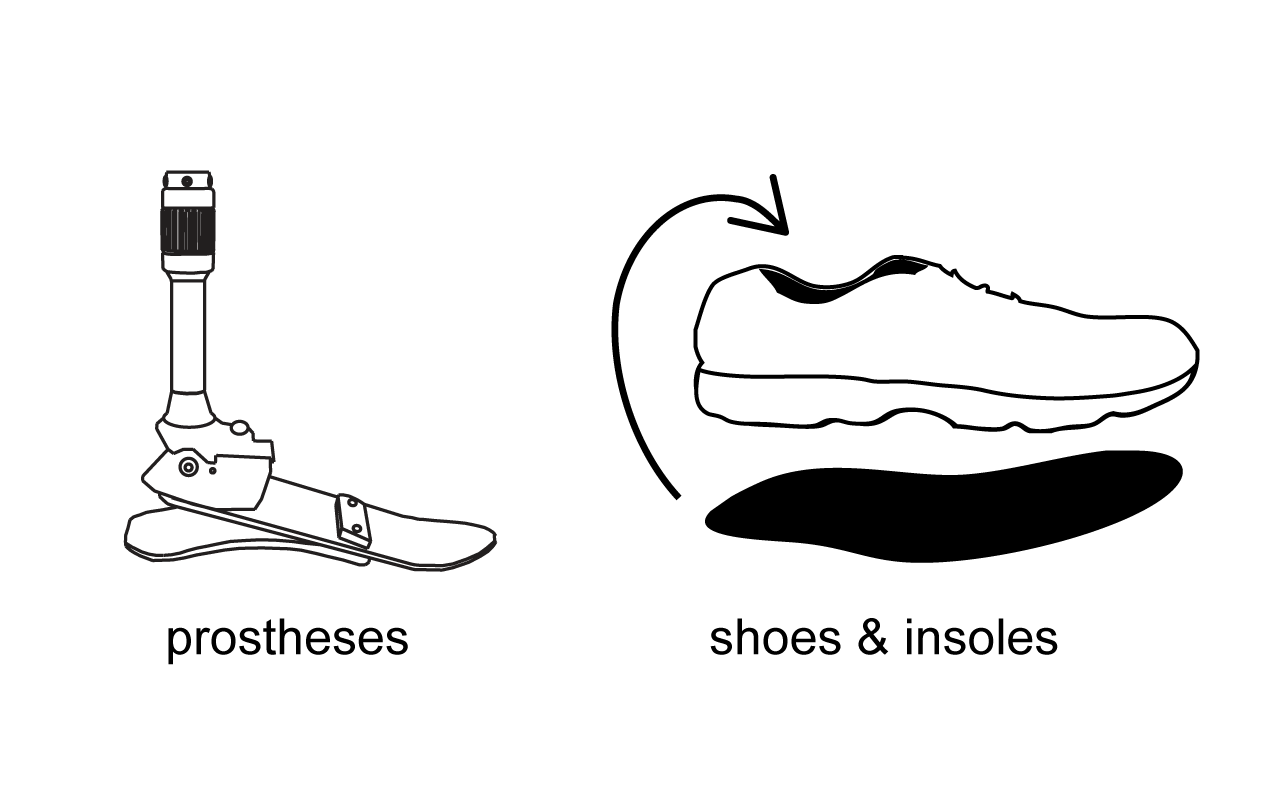
Thermoregulation & Tissue Health
Temperature regulation is an important indicator of tissue health, where overheating is associated with complications like diabetic ulcers. We are currently exploring the causal link between biomechanics, vascular physiology (e.g., blood flow, tissue oxygenation) and thermoregulation in individuals with normal and impaired vascular function, including people with diabetes and limb amputation. By understanding these relationships, we hope to identify risk factors associated with impaired thermoregulation and inspire novel approaches to mitigate tissue complications
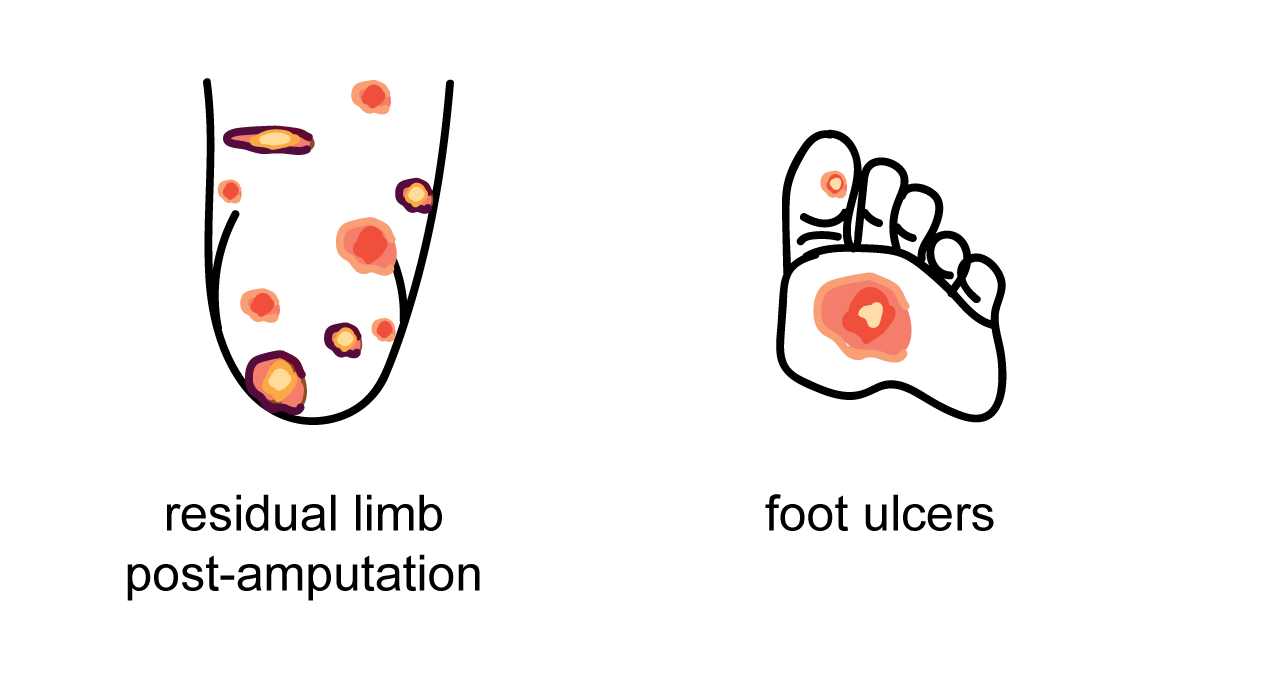
Presentations
Funding
Our work is currently supported by grants from the National Institutes of Health (R01HD106911-01A1, R01AR081287-01) and the Department of Defense (W81XWH2120007).
Contact Us
Please email our lab (SayuLab@utah.edu) with any inquires.
